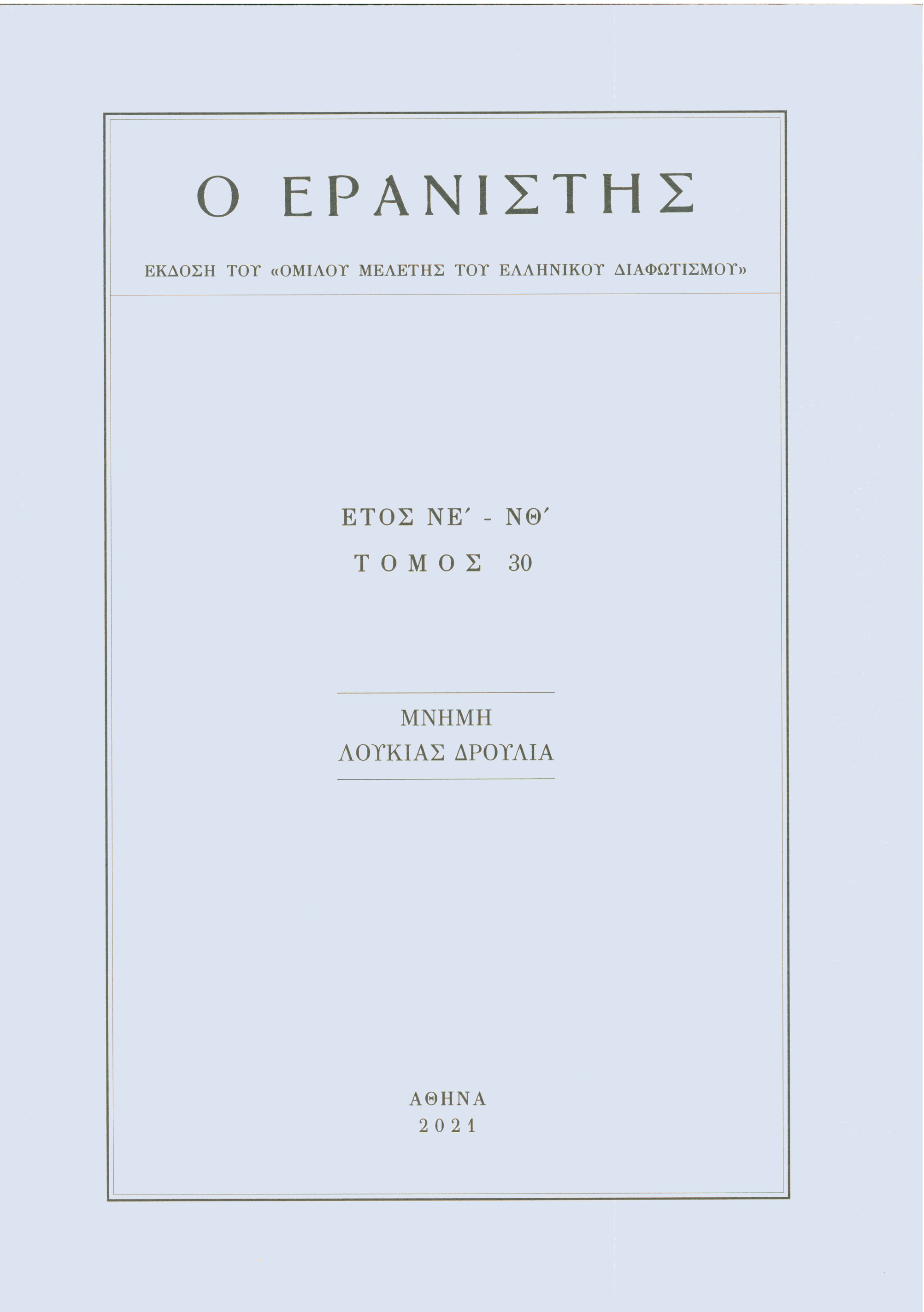Διαφωτισμός και επανάσταση Η διαπλοκή δύο όρων στα ιστορικά τους συμφραζόμενα

Abstract
Enlightenment and Revolution. The interconnection of two historiographical terms in their multiple contexts
This brief essay attempts to address in an exploratory way a challenging question concerning the interconnection of two controversial historiographical terms, Enlightenment and Revolution. The term Enlightenment is defined on the basis of Immanuel Kant’s classic discussion in his 1784 essay and the multiple uses and understandings of the term and idea of Enlightenment are followed through their subsequent transformations in the milestones of relevant historiography. The term Revolution and its changing meanings are also traced in the sources from Herodotus and Thucydides to the discussion of the «Age of Revolution».
The unending controversies over the possible causal interconnection of the broad phenomena denoted by the two terms are acknowledged, but it is suggested that the whole issue might be more effectively clarified if considered in specific historical contexts, by reference to which questions of evidence and historiographical interpretation might be more practically controlled and appraised. It is further suggested that the consideration of the relevant issues in the historical context of Southeastern Europe offers a realistic possibility for an informed judgement on the broader theoretical question on the basis of the evidence of the concrete historical
experience of the region. This kind of contextualization in turn may provide correctives to the occasional excesses of theoretical debates.
Article Details
- How to Cite
-
Kitromilides, P. M. (2024). Διαφωτισμός και επανάσταση: Η διαπλοκή δύο όρων στα ιστορικά τους συμφραζόμενα. The Gleaner, (30), 591–598. https://doi.org/10.12681/er.36131
- Section
- Μελετήματα

This work is licensed under a Creative Commons Attribution-NonCommercial-ShareAlike 4.0 International License.
The copyright for articles in this journal is retained by the author(s), with first publication rights granted to the journal. By virtue of their appearance in this open access journal, articles are free to use (with the exception of the non-granted right to make derivative works) with proper attribution for non-commercial uses. The Greek Society for Eighteenth-Century Studies (ΟΜΕΔ) retains the worldwide right to reproduce, display, distribute, and use articles published in THE GLEANER in all formats and media, either separately or as part of collective works for the full term of copyright. This includes but is not limited to the right to publish articles in an issue of the Journal, copy and distribute individual reprints of the articles, authorize reproduction of articles in their entirety in another ΟΜΕΔ’s publication, and authorize reproduction and distribution of articles or abstracts thereof by means of computerized retrieval systems

